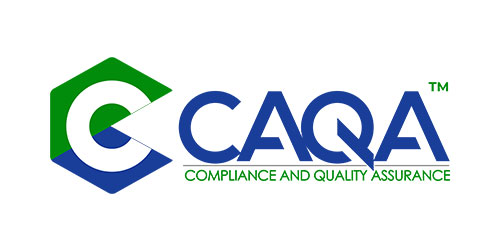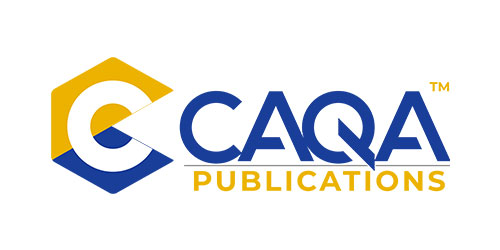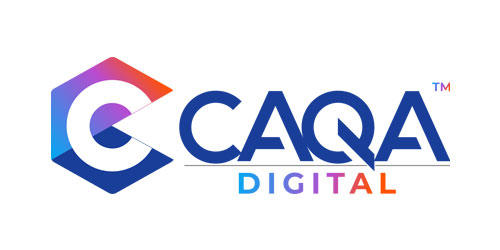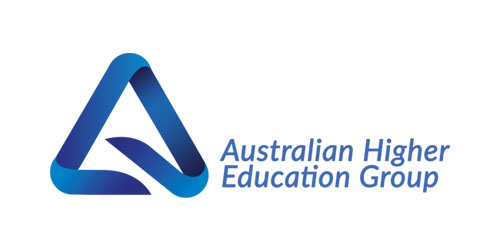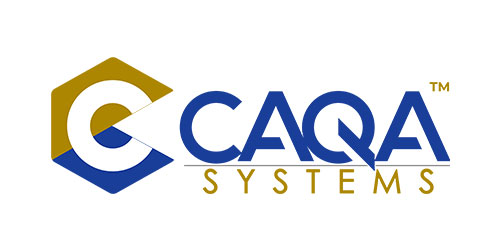-
Home
- |
- Blogs
- |
- Training and Assessment
- |
- According to a new report, businesses are increasing their investments in cybersecurity skills
- Home
- |
- Blogs
- |
- Training and Assessment
- |
- According to a new report, businesses are increasing their investments in cybersecurity skills

According to a new report, businesses are increasing their investments in cybersecurity skills
According to new research from cybersecurity firm Sophos, internal IT departments and businesses are making investments in their staff’ cybersecurity skills and knowledge.
According to a new analysis from Sophos, IT teams around the world faced unprecedented challenges in 2020 and 2021, with cybersecurity issues ranking at the top of the list – if not at the top – of the list. As a result, businesses are increasing their investments in cybersecurity, training the staff members, checking their knowledge and skills to protect organisations and themselves from cyber attacks and making reasonable efforts to safeguard the organisation from any cyber threats.
The cybersecurity behemoth interviewed 5,400 IT managers across 30 countries and discovered that workloads for internal IT Teams are increasing as cyberattacks become more advanced, prompting IT professionals to improve their cybersecurity expertise and hire more in-house security personnel. This is the reason why Australia is continuously focussing on improving and enhancing the cybersecurity skills of its skilled labour.
According to the survey, non-security workloads increased in every industry, with 63 per cent of IT managers across all industries reporting an increase in non-security workloads. The most significant increases in workload were observed in Turkey (84 per cent), Australia (81 per cent), and the United States (75 per cent), with IT teams in government and education being the most adversely affected.
However, 69 per cent of respondents stated that their cybersecurity responsibilities have increased even further, with over 70 per cent of managers in business and professional services, government, construction, education, utilities, manufacturing, and retail stating the same.
Given the sophistication of modern cybercrime, a slim majority (54 per cent) of IT managers surveyed indicated they are having difficulty responding to cyberattacks on their own. Businesses, governments, and the healthcare industry all claimed they require outside assistance to handle cybercrime responses.
IT professionals in Australia say they require the most assistance, with 86 per cent stating that assaults are too advanced for internal IT to handle. In contrast, 54 per cent of respondents in the United States agreed.
According to the survey, these difficulties are contributing to longer reaction times, with 61 per cent of IT managers reporting that their response times to IT problems are increasing, while 19 per cent reported that their response times are either remaining the same or decreasing.
Increasing their cybersecurity knowledge and skills, perhaps out of necessity, is something that IT professionals are doing, with 70 per cent claiming to have been successful in doing so.
The events of the last year and a half have also compelled organisations to increase their investment in their cybersecurity workforce, with 68 per cent of IT managers expecting to increase their in-house security teams over the next two years and 76 per cent expecting to do the same over the next five years as a result of the recent events.
Meanwhile, 56 per cent of respondents anticipate an increase in outsourced IT employees over the next two years, and 64 per cent anticipate an increase over the following five years.
The survey also revealed that firms that were negatively impacted by cybersecurity actually experienced an increase in morale. Overall, 52 per cent of respondents indicated an improvement in IT team morale, but when IT experts whose business had been struck by ransomware were polled, 60 per cent reported an increase in morale in their firm. Ransomware did not have a negative impact on morale in 47 per cent of the firms that were not affected.
It was noted that “adversity – in this case, cyberattacks – frequently creates an opportunity for people to join together and work collaboratively towards a common objective, which helps to increase morale.” The ability to sustain the organisation while dealing with growing attacks provides a sense of satisfaction, as well.
A range of VET resources, RPL kits, LLN kits, training and assessment resources, and e-learning resources in cybersecurity have been developed by CAQA Resources for use by any interested training organisation. You can visit our website www.caqaresources.com.au for more information related to our training and assessment materials or email us at info@caqa.com.au.
3 years ago
Related News

29 April, 2021
Writing your Training and Assessment Strategy – Part 2 of Part 5
To refresh yourself, please find Part 1 here In our part 1, we had the opportunity to cover a number of topics relevant to writing a compliant and useful training and assessment strategy. Topics covered included: What is the definition of training and assessment strategy? Why is it known as a high-level view of a […]
3 years ago

22 August, 2021
According to a new report, businesses are increasing their investments in cybersecurity skills
According to new research from cybersecurity firm Sophos, internal IT departments and businesses are making investments in their staff’ cybersecurity skills and knowledge. According to a new analysis from Sophos, IT teams around the world faced unprecedented challenges in 2020 and 2021, with cybersecurity issues ranking at the top of the list – if not […]
3 years ago

3 September, 2021
How to transition from classroom to online or distance training and assessment
Moving from face-to-face training and assessment to online or distance learning and assessment can be difficult, especially when you have already invested in facilities, equipment, and resources for face-to-face training and assessment. However, in order to survive and also to embrace new technologies, many training organisations have decided to move to an online or distance […]
3 years ago

19 September, 2021
Quality training and assessment resources from CAQA Resources
While operating as a registered training organisation, you will be required to make a range of decisions, with obtaining high-quality training and assessment resources being among the most significant. To ensure that your students receive the learning experience necessary to function competently in their chosen vocation, you need to invest in quality assessment and learner […]
3 years ago

4 October, 2021
The strategies for achieving personal and professional success.
There are many strategies to success you can use in your life. Some people are successful because they work hard. Other people are successful because they have a great opportunity that came their way. Some people are successful because they have the right connections, but most people are successful because they have good timing. These […]
3 years ago

4 October, 2021
Contextualisation – Why you must contextualise the training and assessment resources.
Understanding contextualisation Contextualising assessments and learner materials is one of the most thought-provoking tasks that RTOs face. Many RTOs are deemed non-compliant due to their contextualisation ‘methods’. What is contextualisation, what is the right way to do it, how is it done, why do RTOs conduct it incorrectly? Before explaining what is contextualisation, let’s first […]
3 years ago

14 October, 2021
Risk assessment and risk management at your organisation
Risk assessment and risk management at your organisation should be a continuous process. It involves best practices like identifying, assessing and mitigating risks. Risk assessment is the process of identifying and analysing the hazards, risks, and threats to an organisation. A risk assessment is a process to identify and evaluate the potential risks and threats […]
3 years ago

14 October, 2021
Training and assessment strategies – why you should have a clear roadmap!
When it comes to training, there are many factors that contribute to the effectiveness of the training. However, one of the most important factors is how effective and efficient your training and assessment strategy is. There are a number of key considerations in training and assessment strategies including but not limited to: – Learner experience […]
3 years ago

17 October, 2021
How to protect the copyright of your training and assessment materials Margaret Ryan (lawyer and trade marks attorney)
Training and assessment materials are normally protected by copyright in Australia. They are a valuable resource and should be protected from unauthorised copying, which may reduce their value and the value of the business which supplies these resources. Copyright is automatic In Australia copyright protection is automatic. As soon is an author records their thoughts […]
3 years ago

1 November, 2021
How to check the quality of assessment resources
Critical skills for checking the quality of your assessment resources. The purpose of the assessment tool The main purpose of an assessment tool, student assessment, or assessment pack is to ensure that trainers and assessors can effectively establish whether a learner is competent or not yet competent in a training product. There are three ways […]
2 years ago

1 November, 2021
CAQA FAQ Series – Industry consultation
What is industry consultation in the RTO context? It is a process in which the training representatives of a training organisation consult with representatives from the industry to determine whether they are using the most appropriate facilities, equipment, and resources for delivering the training, whether their trainers and assessors have the most up to date […]
2 years ago

14 December, 2021
Interview with Anna-Louise Allen, Quality and Compliance Auditor
Anna-Louise Allen has been a leader in education and a catalyst for change and innovation in teaching and learning throughout her career. Anna-Louise commenced as a technical school teacher in the western suburbs teaching Geography. She had held leadership positions in schools, run the Geography Teachers Association of Victoria and worked in a variety of […]
2 years ago

31 January, 2022
Formative vs Summative Assessment: A Comparison
Formative and summative assessment, the two main types of assessing knowledge and skills, are often confused with one another. Both types of assessment have a place in the teaching and learning process, but it can be difficult to distinguish between formative and summative assessment. Both formative and summative assessments are used to assess learning, provide […]
2 years ago

20 February, 2022
NCVER Report – Upskilling and reskilling: the impact of the COVID-19 pandemic on employers and their training choices
Photo source: NCVER NCVER’s latest research examines how Australian employers have been affected by the COVID-19 pandemic and their future workforce training plans. To survive financially during the pandemic, many businesses had to adjust and digitise their operations, as well as shift quickly to remote working arrangements. As restrictions started easing in 2020, businesses were […]
2 years ago

20 February, 2022
RTO compliance guide to buy compliant assessment resources
According to almost all ASQA reports, getting an assessment right is one of an RTO’s most difficult compliance issues, with a substantial number of RTOs, audited being found to be non-compliant with clause 1.8 (ASQA’s 2017 report showed around 72{811251a11785699196b1edfb998e8df43131d83f2e2fc9971f96b5821112af2c} RTOs failed audit on assessment resources). This is what we notice as well whenever we […]
2 years ago

25 April, 2022
Issuing qualifications to your own trainers, assessors and staff members
Qualifications are important. They ensure that trainers and assessors are current and competent in their fields. They also help to put a check on the quality of training provided by trainers and assessors. You may be tempted to issue qualifications to your own trainers, assessors and staff members for a number of reasons such as […]
2 years ago
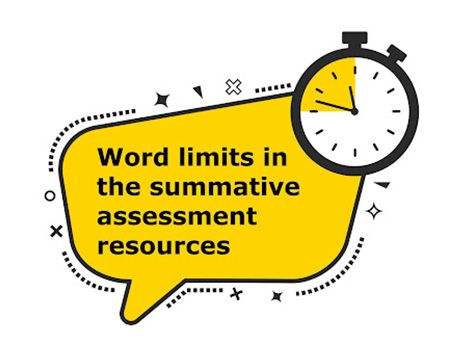
22 May, 2022
The importance of having word limits in the summative assessment resources
One of the most important aspects of VET is summative assessment. Summative assessment resources play a vital role in ensuring that students are able to demonstrate their learning and progress. However, summative assessment resources can also be a source of frustration for both students and educators if they are not well managed and written. It […]
2 years ago
Archives
- July 2022
- June 2022
- May 2022
- April 2022
- March 2022
- February 2022
- January 2022
- December 2021
- November 2021
- October 2021
- September 2021
- August 2021
- July 2021
- June 2021
- May 2021
- April 2021
- March 2021
- December 2020
- November 2020
- May 2020
- February 2020
- December 2019
- November 2019
- October 2019
- September 2019
- August 2019
- July 2019
- May 2019
- April 2019
- March 2019
- December 2018
- November 2018
- October 2018
- September 2018
- August 2018
- July 2018
- June 2018
- May 2018
- November 2016
- October 2016

Sukh Sandhu
Chief Executive Officer
Sukh has been working in the VET and Higher Education Industry for over 20 years. In this time, he has held several roles with RTO’s including CEO roles for International Colleges and National Compliance and Quality Assurance Manager roles for several RTO’s, TAFE’s and Universities. Sukh has also worked for ASQA as a Business Systems Project Official.
Sukh has had extensive project management experience in risk management, compliance, administration and as a training consultant. He has extensive knowledge in government compliance standards and has participated in nearly one hundred audits across Australia and provided consultancy advice regarding ASQA/VRQA, TEQSA, ACPET, DET-HESG, VQF/Higher Education, ELICOS, NEAS, ANMAC, AHPRA, CRICOS, ESOS and ISO.
Sukh is a member of several independent professional organisations and government bodies including, ACPET, VELG, ACS, AITD, MARA, MIA, ISANA, APEX, IEEE, The Internet Society (Global Member), AISIP, IAMOT, ACM, OISV, APACALL, IWA, Eta Kappa Nu, EDSIG and several others.

 Enroll Now
Enroll Now Info Pack
Info Pack
